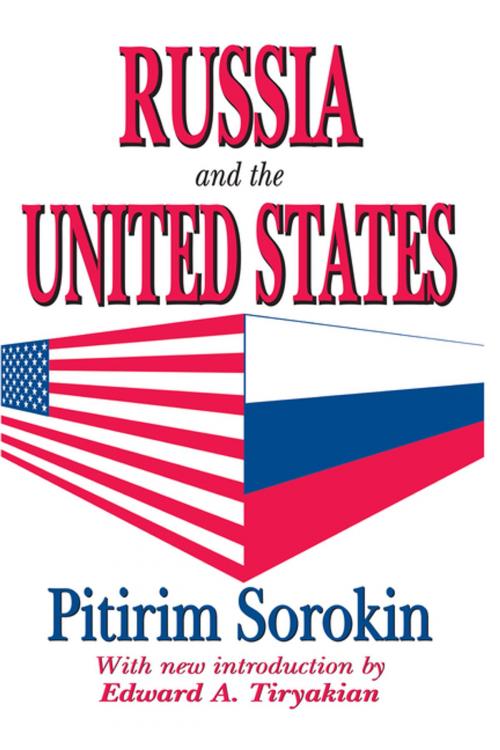Russia and the United States
Nonfiction, Social & Cultural Studies, Political Science, International, International Relations| Author: | Pitirim Sorokin | ISBN: | 9781351492300 |
| Publisher: | Taylor and Francis | Publication: | July 5, 2017 |
| Imprint: | Routledge | Language: | English |
| Author: | Pitirim Sorokin |
| ISBN: | 9781351492300 |
| Publisher: | Taylor and Francis |
| Publication: | July 5, 2017 |
| Imprint: | Routledge |
| Language: | English |
Throughout the Cold War, both the United States and the Soviet Union viewed themselves as saviors of the world, and each saw itself as working on behalf of humanity against the other. The unexpected implosion of the Soviet empire in 1989 brought an end to this bipolar world and left both nations uncertain about their relations to the world and to each other. Antagonism between the United States and Russia is rooted in a lack of knowledge of each other's culture and history. This pioneering volume, first published in 1944 at the height of the U.S.-Soviet alliance, steers us through the labyrinth of mutual ignorance that continues in the post-Cold War era. Pitirim Alexandrovitch Sorokin is one of the major figures of modern sociology. Born in rural Russia in 1889, he took an active part in the country's political life. Following his emigration to the United States, he strove to develop an insider's knowledge of his new home. Russia and the United States was written in the hope of fostering cooperation between the two countries in the postwar world. By noting a shared belief in each nation's historical role or "exceptionalism," Sorokin argues that there is a fundamental compatibility in the basic values of the two countries, facilitated by shared mental, cultural, and social attitudes that preceded the communist period.Without minimizing the tyrannical nature of the Soviet regime, Sorokin locates and traces the development of democratic tendencies in Russia. He also points out that American democracy has not been fully achieved and that both nations have yet to fulfill their ideals. Both countries have been melting pots of diverse racial, ethnic, national, and cultural groups and peoples, and from their multiethnic composition, Russia and the United States have each developed a rich and creative culture. Sorokin rejects the notion of diametrically opposed American and Russian "souls," in favor of an appreciation of shared values.
Throughout the Cold War, both the United States and the Soviet Union viewed themselves as saviors of the world, and each saw itself as working on behalf of humanity against the other. The unexpected implosion of the Soviet empire in 1989 brought an end to this bipolar world and left both nations uncertain about their relations to the world and to each other. Antagonism between the United States and Russia is rooted in a lack of knowledge of each other's culture and history. This pioneering volume, first published in 1944 at the height of the U.S.-Soviet alliance, steers us through the labyrinth of mutual ignorance that continues in the post-Cold War era. Pitirim Alexandrovitch Sorokin is one of the major figures of modern sociology. Born in rural Russia in 1889, he took an active part in the country's political life. Following his emigration to the United States, he strove to develop an insider's knowledge of his new home. Russia and the United States was written in the hope of fostering cooperation between the two countries in the postwar world. By noting a shared belief in each nation's historical role or "exceptionalism," Sorokin argues that there is a fundamental compatibility in the basic values of the two countries, facilitated by shared mental, cultural, and social attitudes that preceded the communist period.Without minimizing the tyrannical nature of the Soviet regime, Sorokin locates and traces the development of democratic tendencies in Russia. He also points out that American democracy has not been fully achieved and that both nations have yet to fulfill their ideals. Both countries have been melting pots of diverse racial, ethnic, national, and cultural groups and peoples, and from their multiethnic composition, Russia and the United States have each developed a rich and creative culture. Sorokin rejects the notion of diametrically opposed American and Russian "souls," in favor of an appreciation of shared values.















